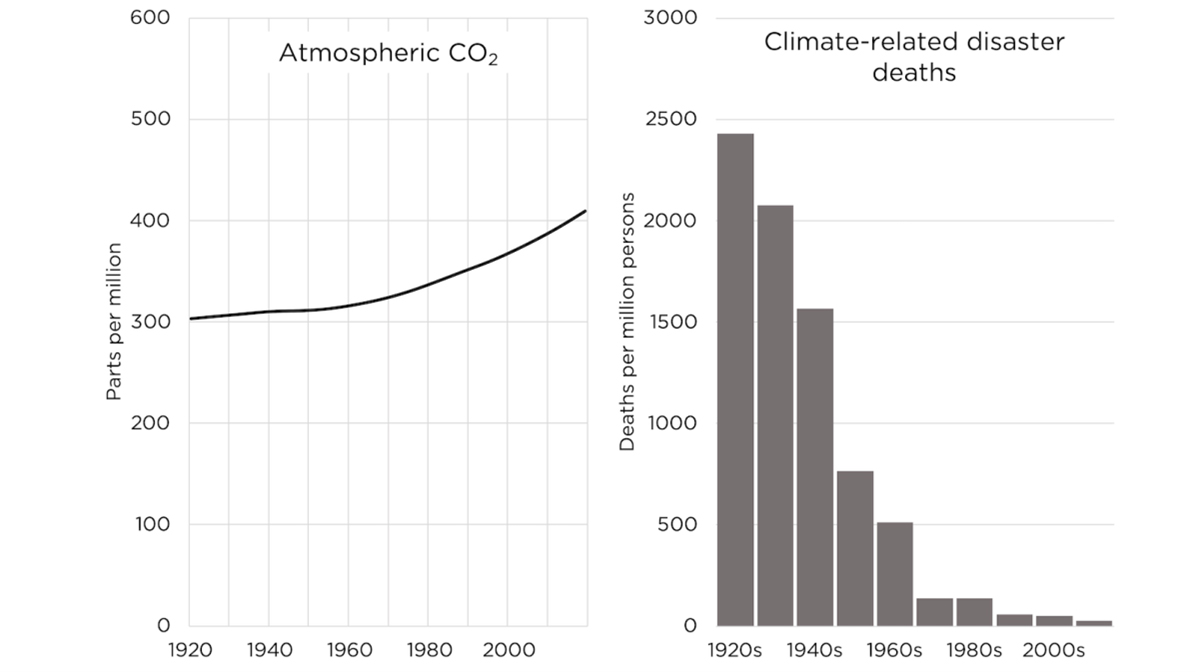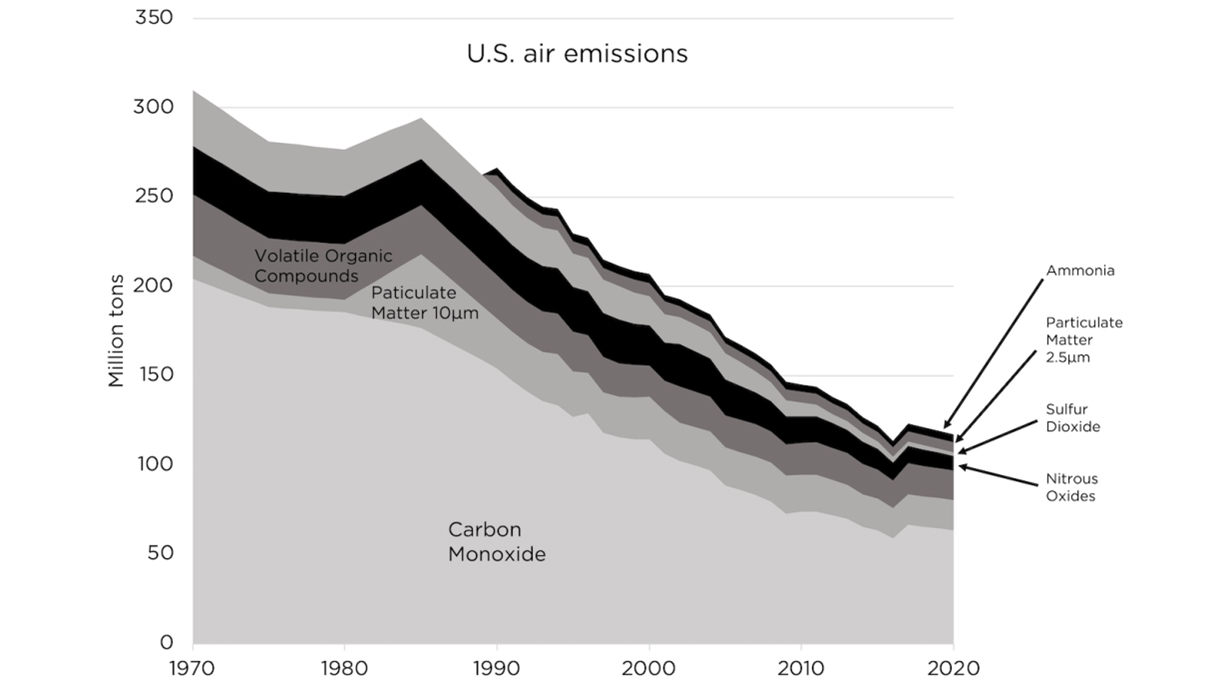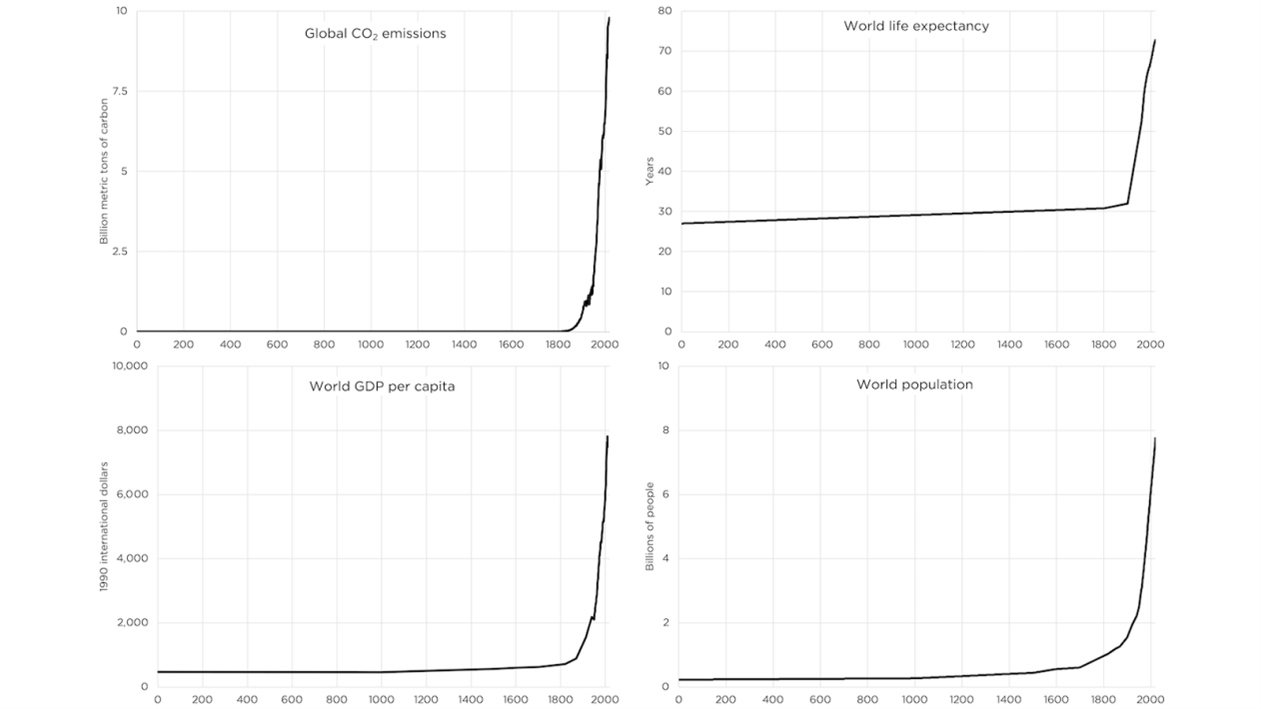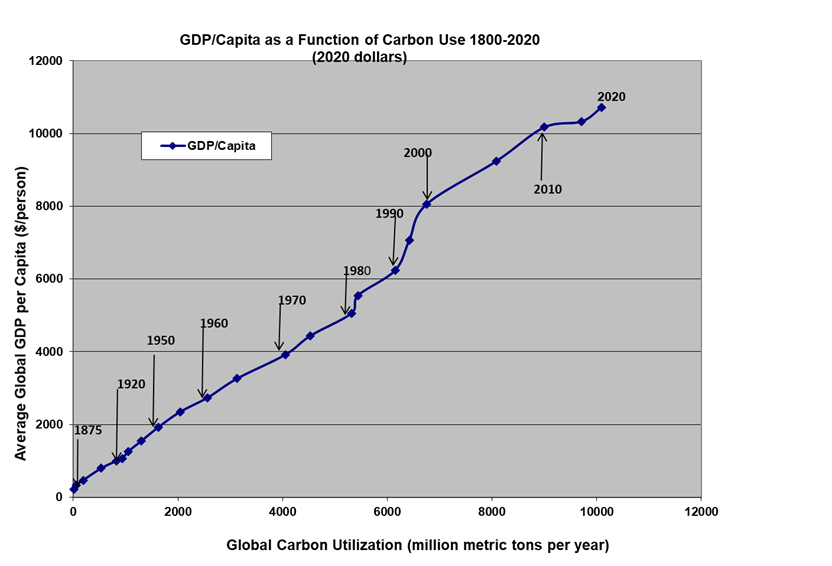Our Fossil-Fuels Future By Robert Zubrin
https://www.nationalreview.com/2022/06/our-fossil-fuels-future/
Alex Epstein, author of The Moral Case for Fossil Fuels, has delivered another knockout punch against Green ideology. Aptly entitled “Fossil Future: Why Global Human Flourishing Requires More Oil, Coal, and Natural Gas — Not Less,” Epstein’s new work includes the comprehensive factual case for fossil fuels as he presented it in his earlier book. He then proceeds to eviscerate the mental framework behind the war on fuel.
Epstein begins his discourse by identifying the “knowledge system” being used to perpetrate the anti-carbon crusade. He then very reasonably states that any judgment regarding the positive or negative nature of any phenomenon, including fossil-fuel use, should include consideration of both its pluses and minuses. He then describes the extraordinarily positive impact of fossil-fuel use on the development and maintenance of modern civilization. In particular, he focuses on the unprecedented gains in health, productivity, education, mobility, safety, life spans, leisure time, living standards, environmental quality, and practically any other index of human well-being one could mention. He does this with the help of a series of graphs, as follows.
In figure 1, he shows that, far from causing a climate catastrophe, fossil-fuel use has virtually ended climate catastrophes, with the number of climate-related deaths falling 98 percent in the last century. Epstein says this is due not to any marked improvement in the climate but rather to increased societal resiliency as a result of our growing fossil-fuel-enabled technological powers. For example, deaths due to extreme temperatures have been greatly reduced through effective home heating and air conditioning, and deaths due to famine have been virtually eliminated both by the abundance produced by fossil-fuel-driven fertilized and irrigated agriculture and by modern society’s fossil-fuel-enabled ability to rapidly transport food around the world. In addition, he says, CO2 enrichment of the atmosphere has accelerated the rate of plant growth worldwide. This is true, as shown by NASA satellite data. He could also have mentioned that warming has expanded the growing season, as shown by EPA data. (Climate alarmists never mention this, either, even though it is the strongest proof of the reality of warming. Guess why not.)

In figure 2, Epstein shows the improvement in U.S. air quality due to fossil-fuel-driven technological progress. Humans require fire to live — even Homo erectus used fire. Prior to the advent of fossil fuels, humans everywhere used wood as their primary fuel for cooking and heating. Wood smoke, which is filled with tar vapors, is far more polluting than fossil-fuel smoke. Consequently, those places that remain biomass-dependent for fuel have by far the worst air quality, and their inhabitants are susceptible to very serious health problems as a result. Epstein also discusses the fossil-fuel-enabled general availability of clean water to the vast majority of the world’s population for the first time in human history. Oddly, he fails to discuss one of the most profound environmental-improvement technologies enabled by fossil fuels: automotive transportation.
Before the advent of automobiles, the streets of major cities were virtually sewers for horse manure, and they stank to high heaven as a result. Well-organized cities employed large numbers of “street sweepers” and tried to keep the problem under control through menial labor. (My parents, who were born in 1916, when there were still many horse-drawn vehicles in New York, would warn me as a child to study hard or I could end up as a street sweeper.) Poorly organized cities had streets filled with dung. (This is why ancient Roman sidewalks were set so high above street level.) Thomas Edison was driven to invent the electric car by the need to “get the horses out of the city.” (Electric cars predate gasoline cars.) Fortunately, one of Edison’s employees, a young man named Henry Ford, quit to start his own company. The Ford Motor Company grew to become a manufacturer of practical and affordable automobiles, finally solving in the process the problem of gross urban pollution.

In the graphs shown in figure 3, Epstein presents “hockey sticks” showing how GDP per capita and human life expectancy have shot up simultaneously with the exponential increase in fossil-fuel use. To obscure the issue, a denier of the benefits of carbon might argue that the simultaneous nature of these trends is coincidental. Epstein shows that this is nonsense, listing the numerous ways that fossil fuels have served to increase both GDP (everything we use is both produced and transported to us using fossil fuels) and life span (through improved abundance, scientific knowledge, and environmental quality, all enabled by fossil fuels).

Still, Epstein’s graphs are hard to read and misleading in a way that weakens his argument, because they imply that GDP per capita and life span are increasing as a function of time rather than as a function of fossil-fuel use. If these benefits are graphed against fuel use, the causal relationship jumps out at you. For example, in the graph below (not taken from the book), I show the average global GDP per capita in 2020 dollars, graphed against carbon use. It would have been more powerful to present the case this way.

Nevertheless, Epstein’s points should be clear enough to anyone who is not a reality-denier. Having presented this compelling material, he comes back to his central question: Does the anti-carbon “knowledge system” properly counterpose the putative benefits of fossil-fuel elimination against the loss of the spectacular benefits of fossil-fuel use? Or does it counterpose the putative benefits of fossil-fuel elimination against the denial of such benefits to the billions of people who have yet to experience them? Clearly, the answer to the second question is “No.” Therefore, the anti-carbon knowledge system cannot be trusted.
And yet, despite inaccuracy and obfuscation, the knowledge system persists worldwide. Why? Well, for starters, it parades around “designated experts” to certify its views. It is worth noting, however, that the figureheads of the movement — the “experts” — are often inconsequential players in the ongoing scientific debate. Many are ideologues more than anything else. In addition to providing a few delightfully loony quotes from Bill McKibben and other leading current celebrities of this tribe, Epstein homes in on Paul Ehrlich, the author of The Population Bomb. This might seem like an odd choice. While Ehrlich is still alive, his days as a Malthusian late-night TV-show rock star guest ended half a century ago. However, Epstein’s target is apt, since it was Ehrlich who formulated the equation that provides the mathematical bedrock of the modern antihuman movement. Ehrlich’s equation, drawn up in conjunction with his student John Holdren (who subsequently became President Obama’s science adviser), is I = P x A x T, where I is impact, P is population, A is affluence, and T is technology.
Apart from P, none of the factors in this “equation” are defined quantitatively, but put that aside for a moment. The equation is pure nonsense. In the first place, it assumes that human impact on the environment is, by definition, bad. There is no basis for that, even if one (improperly) disregards human flourishing as a priority. For example, if humans drain a swamp to suppress malarial mosquitoes, their action will benefit the health not only of humans but also that of birds and mammals in the area that are also plagued by insect-borne diseases.
Furthermore, advancing technology does not, in general, increase human environmental impact. In fact, the opposite is true. For a given amount of food produced, farmers create much less environmental impact than do hunter-gatherers. Those who mine coal or drill for petroleum tax natural ecosystems much less than do those who cut down forests or hunt whales, and nuclear energy reduces the “tax” to near zero. This is because high-technology energy sources draw on resources that are little used (such as natural gas) or not used at all (such as uranium) by the biosphere.
So, really, Ehrlich’s equation is not science at all. Rather, it is just a statement that anything humanity does is bad and that human happiness, capability, and population growth should be constrained as much as possible. But the “anti-impact framework” has been erected upon this pseudo-intellectual foundation. Within the framework, it follows as a matter of course that anything good for humanity, such as fossil fuels or nuclear power, should be banned.
Epstein counterposes this worldview to a “human flourishing framework” that leads to diametrically opposite conclusions. Ultimately, his argument is about pro-human versus antihuman ethical frameworks, not about the pluses and minuses of fracking and photovoltaic technology. As he writes, “One giveaway of both elements of the anti-impact framework is any kind of claim about how the planet has way too many people.” Later on, he notes that “designated expert Michael Mann has written: ‘We probably already exceed the [planet’s] carrying capacity by a factor of eight,’” commenting that such a statement “reveals a deep saturation in the delicate nurturer assumption as well as a callous disregard for the value of human life. To casually talk about billions of people as if their lives were a bad thing is not something someone on the human flourishing framework would do.”
Epstein maintains a cool tone and a tight focus in this book on practical ethics and on how it applies to the current debate on fossil fuels versus net zero. Oddly, for someone with a philosophical background, he does not discuss the theological and philosophical foundation for the drive of Western civilization to pursue technological virtuosity to free humanity from brute toil. That impulse, based on Judeo-Christian ideas of humans as made in the image of God, or as children of God, with the inherent right and obligation to continue the work of creation through their divine grant of dominion over nature, long predates the advent of fossil-fuel technology. As a result of this drive, medieval Europe was highly mechanized, with water and wind put to work to replace physical labor wherever feasible.
For example, the Domesday Book lists over 10,000 water-driven flour mills and sawmills in Norman England. By the middle of the high Middle Ages, the undersides of practically every river bridge in France were filled end to end with waterwheels to exploit hydromechanical energy. This limit being reached, French tinkerers greatly expanded Europe’s energy resources in the twelfth century by inventing the post windmill. Harnessing wind energy posed a more difficult challenge than capturing water energy because wind changes direction. Exploiting the wind required the invention of a control system that would automatically turn a windmill to face the wind. Then, with the invention of the full-rigged sailing ship, Europeans gained access to many of all the world’s natural and artificial resources. This technologically oriented and enabled society then proceeded to radically expand its energy resources further, through the introduction of fossil fuels, initiating the industrial revolution. Readers interested in studying these aspects of technological history might wish to consult the works of technological historians such as Lynn White Jr. and Frances and Joseph Gies.
Epstein does not explore how ideas, such as “carrying capacity,” that are generated by the anti-impact framework have repeatedly served as the ideological basis for some of the most horrific crimes of the past two centuries. These have ranged from the Malthusian administration of famine in Ireland to the Nazi Hunger Plan (designed to eliminate most of the population of Eastern Europe, including the Balkans) to “population control” programs funded by the U.S. State Department and imposed on developing nations as a condition for giving them foreign aid. I explore this aspect of antihumanism in my book Merchants of Despair (2012).
Nor does he discuss the funding of the environmental movement, which determines how it chooses the industries it targets for destruction. (A better source for that is the book Apocalypse Never by California gubernatorial candidate Michael Shellenberger.) Or the fact that the Kremlin backed the European Green movement’s campaign against fracking and nuclear power might have something to do with Putin’s strategic goals, as well as with the movement’s anti-impact framework. So Epstein’s book is strangely apolitical. But by shunning so many arguments, he is able to drive to the heart of the matter, which is freedom.
Epstein writes that we
live on a naturally deficient and dangerous planet, and our bodies have very meager productive abilities.
To amplify and expand our productive abilities, we need cost-effective energy and machine labor. . . . Thus, cost-effective energy and machine labor are fundamental to human flourishing.
But what leads to cost-effective energy and machine labor?
A more fundamental cause: the power of the reasoning mind. . . .
And reasoning human minds can identify cost-effective ways to produce and use energy only to the extent they are free to do so.
As America’s greatest orator, Robert Ingersoll, used to say: “Free thought gives us truth. Free labor gives us wealth.”
I doubt that Epstein has read Ingersoll, because few people of his generation have. But great minds think alike.
Freedom gives us flourishing.
Well said.
Comments are closed.
